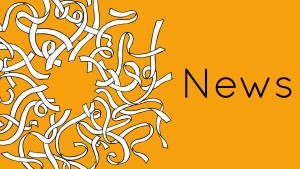 A protein-based fibre to rival spider’s silk has been made from the slime of an eel-shaped creature known as a hagfish. Atsuko Negishi from Guelph University has been able to form fibres out of thin films of slime thread proteins. Fibres which protein concentrations above 5% showed promising properties for use in high-strength textiles. The fibres appear to have very similar mehanical properties to lab-made spider’s silk, which is well-known for it’s strength, toughness and ability to stretch without breaking.
A protein-based fibre to rival spider’s silk has been made from the slime of an eel-shaped creature known as a hagfish. Atsuko Negishi from Guelph University has been able to form fibres out of thin films of slime thread proteins. Fibres which protein concentrations above 5% showed promising properties for use in high-strength textiles. The fibres appear to have very similar mehanical properties to lab-made spider’s silk, which is well-known for it’s strength, toughness and ability to stretch without breaking.
Many modern synthetic textiles like Kevlar rely on petroleum as a raw material, which is becoming more costly as well as being unsustainable. Fibres synthesised from hagfish or spider’s silk could be a sustainable and cheaper alternative. Hagfish slime may prove to be a better candidate than spider’s silk because it is easier to collect large amounts of protein fibres from it. According to Negishi “The way spiders produce their silks is complex, and spiders cannot be farmed to yield high quantities of silk.”
Although this technology may be novel, hagfish themselves are known as “living fossils” as the species is thought to be relatively unchanged over 300 million years. They produce large amounts of slime as a defense mechanism against predatory fish. One Atlantic Hagfish is capable of producing litres of slime in seconds, which can contain tens of thousands of microfibres known as thread proteins. Each of these thread proteins are 100 times thinner than a human hair. This could provide an abundant source of raw material for making fibres if the technology were to be scaled up.
The next stage for Negishi and colleagues will be to study the spinning of fibres from slime thread proteins to further develop prodcution. They also are looking to investigate other similar proteins and develop novel uses for them as sustainable materials.
![Sustainable fibre made from hagfish slime A protein-based fibre to rival spider’s silk has been made from the slime of an eel-shaped creature known as a hagfish. Atsuko Negishi from Guelph […]](/wp-content/uploads/2011/10/News-image-01-620x300.jpg)